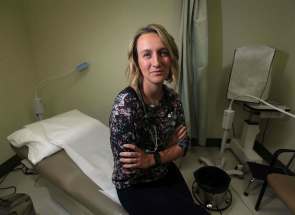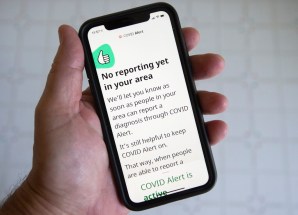One message forward, two messages back
Read this article for free:
or
Already have an account? Log in here »
To continue reading, please subscribe:
Monthly Digital Subscription
$1 per week for 24 weeks*
- Enjoy unlimited reading on winnipegfreepress.com
- Read the E-Edition, our digital replica newspaper
- Access News Break, our award-winning app
- Play interactive puzzles
*Billed as $4 plus GST every four weeks. Offer only available to new and qualified returning subscribers. Cancel any time.
Read unlimited articles for free today:
or
Already have an account? Log in here »
Hey there, time traveller!
This article was published 19/09/2020 (1624 days ago), so information in it may no longer be current.
One step forward, two steps back.
That’s a fair assessment of the province’s progress — or lack thereof — in providing Manitobans with detailed information about positive cases of COVID-19.
The government took a step in the right direction earlier this month, when its website began disclosing specific geographical information on where in Winnipeg people who have tested positive for the novel coronavirus live.
Instead of continuing to treat Winnipeg’s huge population base as a single health district for reporting purposes, the province now wisely divides the city into 12 health districts so the public can see how many active and recovered cases, hospitalizations and deaths there are in different areas.
This week, however, the province’s commitment to openness took a step in the opposite direction when public-health officials decided to pull back on the amount of information they’re sharing about COVID-19 cases in Manitoba schools.
The government is showing itself to be tone deaf in cutting back on the information it provides, at a time when an anxious public is seeking clarity regarding positive cases and possible exposures that may have resulted.
When the first positive case of the novel coronavirus was reported at a school, health officials issued a bulletin offering details regarding a case at Winnipeg’s Churchill High School.
But Manitoba’s chief public health officer, Dr. Brent Roussin, decided the policy had to change because “there was a tremendous amount of stigmatizing behaviour that came out” after details of the Churchill High case were revealed, including unacceptable social-media posts targeting the student.
In an effort to protect privacy and prevent stigmatization, the province decided to no longer release information that potentially could identify individuals with COVID-19 in Manitoba schools. That means no mention of whether cases involve staff or students, nor any mention of a grade, room number or cohort.
The government is showing itself to be tone deaf in cutting back on the information it provides, at a time when an anxious public is seeking clarity regarding positive cases and possible exposures that may have resulted.
Health officials are fooling themselves if they believe they can prevent stigmatization simply by refusing to release information the public not only has a right to know, but in many cases might actually need to know.
Stigmatization is never acceptable, but the province should err on the side of providing more information, not less.
In today’s social-media universe, where almost every student, regardless of age, is armed with a smartphone, it is impossible to shut down the high-tech student grapevine. As soon as one student hears something — accurate or otherwise — it’s going to spread rapidly, much like a virus.
Provincial officials are showing themselves to be far more concerned with a few complaints about the potential risk of stigmatization than they are with the fact many schools are being flooded with calls from worried parents demanding detailed information regarding whether a child is at risk.
Dr. Roussin has said any information other than the name of a school will be shared only with those who need to know. From the start of the pandemic, Manitoba’s top doctor has made privacy a chief concern, opting for nondescript terms such as as “communal living situations” to prevent stigmatization.
It bears repeating, however, that privacy concerns should not trump health warnings in a pandemic that is claiming lives and crushing the economy. Stigmatization is never acceptable, but the province should err on the side of providing more information, not less.
If Manitobans are going to see their way through these troubled times, the province has to stop leaving them in the dark.
Individuals need not be named, and Dr. Roussin can, and should, continue to warn Manitobans not to use social media to torment those who have tested positive. But he should also realize that in the absence of real information about reported cases, rumours and misinformation will quickly fill the void.
If Manitobans are going to see their way through these troubled times, the province has to stop leaving them in the dark.




.jpg?h=215)






